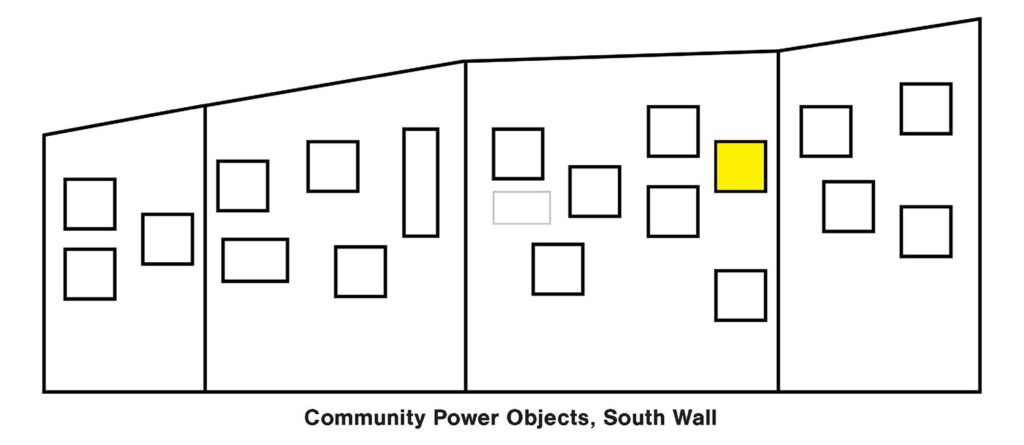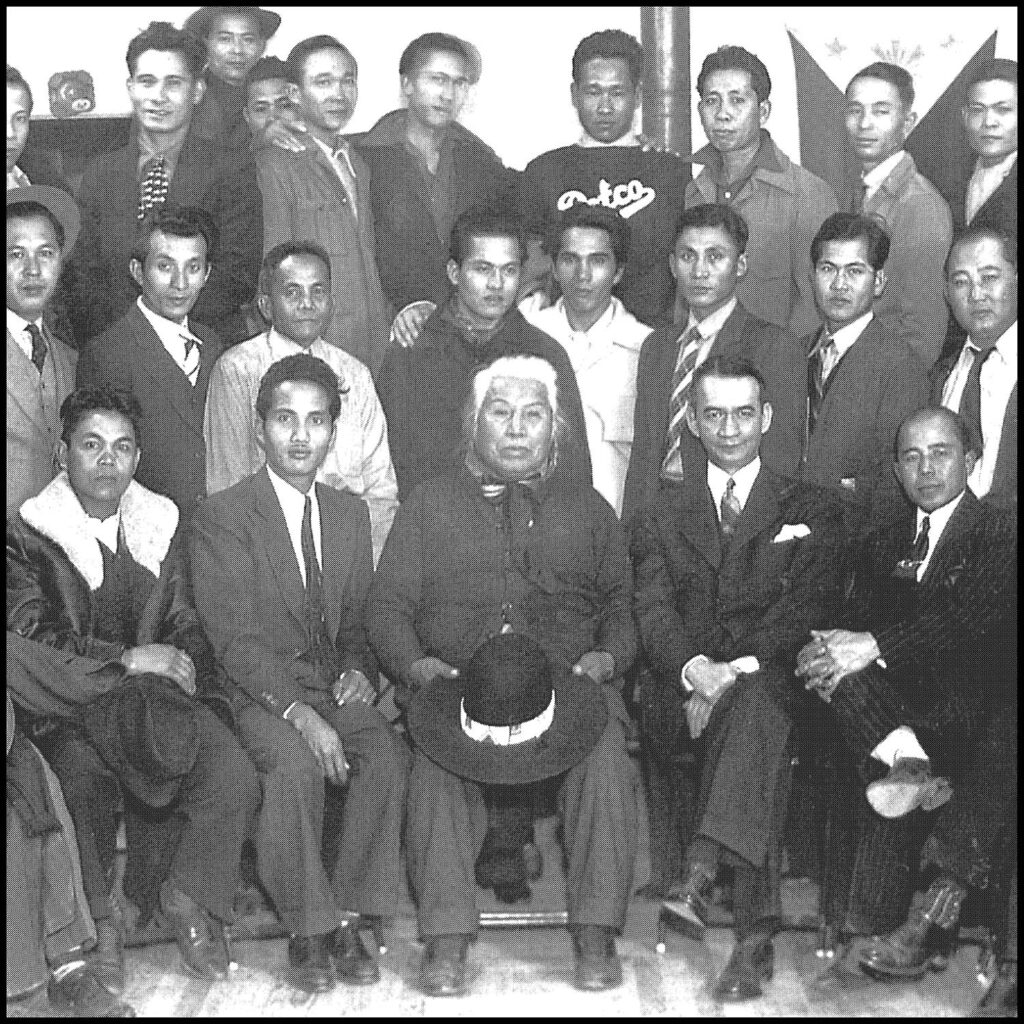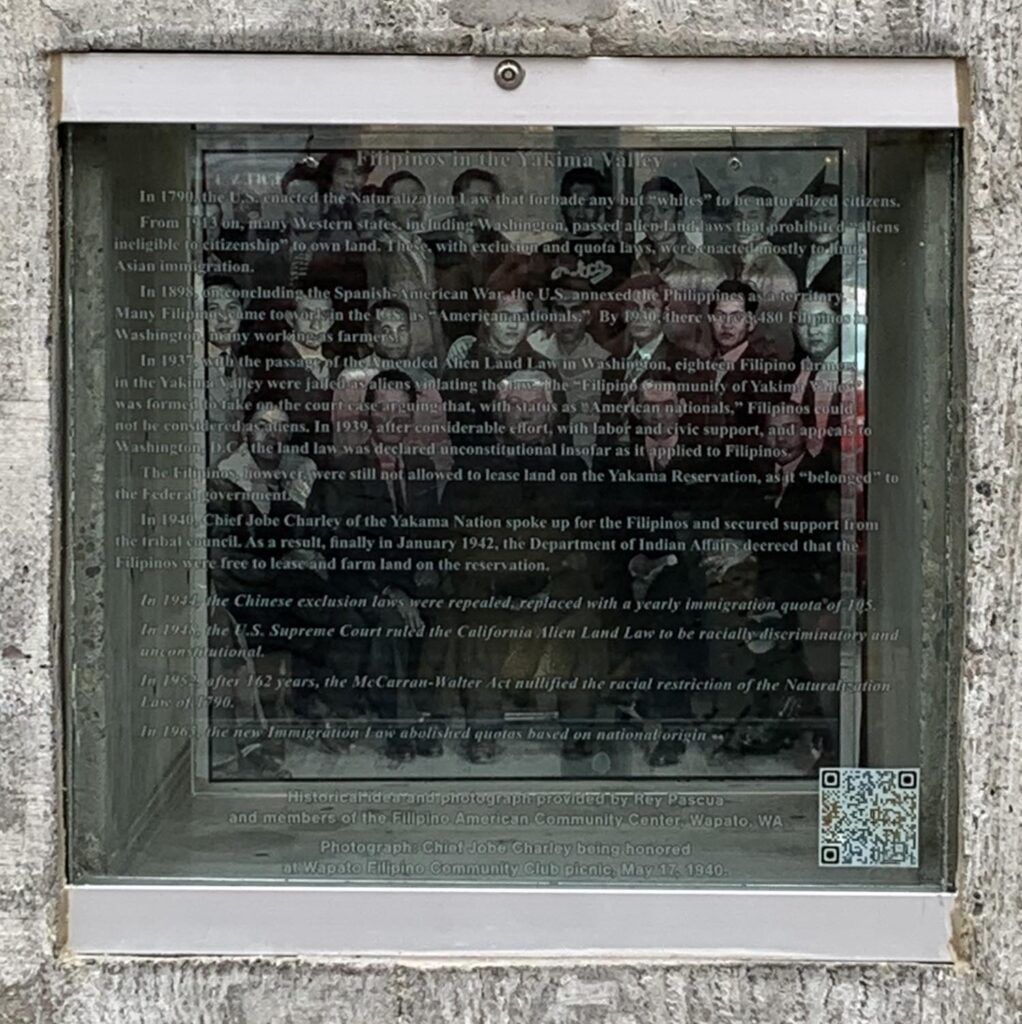Filipino Community – Millennium Plaza
The Filipino Community
In 1790, the U.S. enacted the Naturalization Law that forbade any but “whites” to be eligible to be naturalized citizens.
From 1913 on, many Western states, including Washington, passed alien land laws that prohibited “aliens ineligible to citizenship” to own land. These, with exclusion and quota laws, were enacted mostly to limit Asian immigration.
In 1898, on concluding the Spanish-American War, the U.S. annexed the Philippines as a territory. Many Filipinos came to work in the U.S. as “American nationals.” By 1930, there were 3,480 Filipinos in Washington, many working as farmers.
In 1937, with the passage of the Amended Alien Land Law in Washington, eighteen Filipino farmers in the Yakima Valley were jailed as aliens violating the law. The “Filipino Community of Yakima Valley” was formed to take on the court case arguing that, with status as “American nationals,” Filipinos could not be considered as aliens. In 1939, after considerable effort, with labor and civic support, and appeals to Washington, D.C., the land law was declared unconstitutional insofar as it applied to Filipinos.
The Filipinos, however, were still not allowed to lease land on the Yakama Reservation, as it “belonged” to the Federal government.
In 1940, Chief Jobe Charley of the Yakama Nation spoke up for the Filipinos and secured support from the tribal council. As a result, finally in January 1942, the Department of Indian Affairs decreed that the Filipinos were free to lease and farm land on the reservation.
In 1944, the Chinese exclusion laws were repealed, replaced with a yearly immigration quota of 105.
In 1948, the U.S. Supreme Court ruled the California Alien Land Law to be racially discriminatory and unconstitutional.
In 1952, after 162 years, the McCarran-Walter Act nullified the racial restriction of the Naturalization Law of 1790.
In 1965, the new Immigration Law abolished quotas based on national origin.
Historical idea and photograph provided by Rey Pascua and members of the Filipino American Community Center, Wapato, WA
Photograph: Chief Jobe Charley being honored at Wapato Filipino Community Club picnic on May 17, 1940



